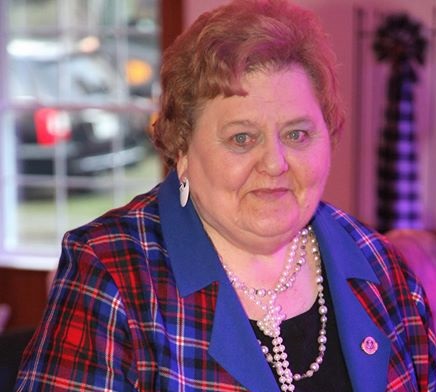NORTH GLENGARRY, Ontario – As Highlanders everywhere prepare to celebrate the 70th edition of the Glengarry Highland Games, a moment of sadness must be faced first due to the passing of a very grand Games lady, Connie Kippen Blaney, on Wednesday, January 25, 2017.
The first Glengarry Highland Games were held in 1948. That year, Connie, at age fifteen, took first prize
in the under‐eighteen piping competition. As well as being successful at Maxville, she also excelled at
games in Montreal, Fergus, Embro, Syracuse and Schenectady, winning many trophies.
It was during this period of her career that she was acknowledged and recognized as being one of the
best lady pipers in North America. It was also about this same time that Connie affectionately became
known as “Glengarry’s Sweetheart”.
After graduating from Ottawa Teachers College, Connie taught school for thirty five years in the area.
The last twenty of these years were spent at the Maxville Public School. Connie was a founding member
of the Glengarry Pipe Band and was Pipe Major from 1965 to 1968 and was a highly regarded teacher
and champion of piping in Glengarry.
Connie has been involved with the Games since their beginning. In 1981 Connie became the Secretary
for the Games Committee and she remained in that position for fifteen years. In 1988‐89 she served as a
Vice‐President and in 1991 she became the President. As a member of the Tartan Committee she was
instrumental in the creation of the Glengarry Highland Games tartan. In 2005, she was inducted into the
Glengarry Celtic Music Hall of Fame. Connie continued to sit as an active director and past‐president
until she passed away this week.
Games President Anne Stewart speaks for the Games Organizing Committee when she says, “Respected
for her many accomplishments in the community and in the piping world, Connie will be missed, and her
contributions to the Games will never be forgotten. Connie was a trailblazer, whose determination and
success as a young female piper competing on the Ontario circuit in the 1940s and 1950s enabled future
generations of women (including my eldest daughter), to play and compete at the highest level of piping
and in pipe bands worldwide. Her smile, her laugh, her knowledge… Connie is irreplaceable and we will
miss her terribly.”




